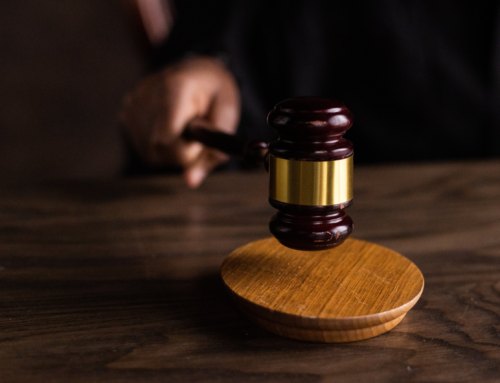Q: “If I have a will, is my estate and family safe from delays and expenses from Probate Court?”
A: This is one of the most commonly misunderstood aspects of estate planning, and unfortunately, just having a will is not sufficient to avoid probate.
WHAT IS A WILL?
A will is a document that details your final wishes for your personal and/or real property after death.

When you create your will, you’ll notice clauses that go beyond simply listing the names of personal and real property heirs, stating:
- whom you wish to appoint to be your personal representative (commonly known as the “executor”)
- how you wish to deal with debts and taxes
- naming a guardian for your children if necessary
- providing for pets (considered personal property)
- deciding whether to require a surety with or without a bond
THE PROCESS: WHAT HAPPENS TO YOUR WILL WHEN YOU DIE?
A probate of an estate must be opened upon a person’s death, unless that person has pre-planned in such a way to avoid probate.
In Massachusetts, there are two main options to petition for a probate:
- an informal probate
or, - a formal probate
If a will exists, it’s submitted along with the “Petition” and the required notices and the entire package is reviewed by the Probate Court. The Probate Court will then issue an “order” and “letters of authority” appointing a personal representative (executor) of the estate, who is almost always the person named in the will. The distribution of assets and property will then begin according to the terms of the will, with or without court supervision.
HOW TO AVOID PROBATE
How do you avoid probate? One word: “beneficiaries.”
Avoiding probate can be less expensive and less time consuming for your estate, but it doesn’t allow you to avoid taxes, creditors, or your family’s rights, should you try to disinherit, or … “to change one’s will or take other steps to prevent (someone) from inheriting one’s property.” (dictionary.com)
At PK Boston, we believe that probate should be avoided as much as possible. The most efficient way to do so, as detailed below, is to create a trust (read PK Boston’s “Is Estate Planning Right For You?“).
Here are some general ways to avoid probate with the most common assets:
Real Estate:
If you own a piece of real estate, how you own it is important for how it transfers upon your death.

Some options:
- transfer the property into a living trust and name a successor beneficiary
- own the property in a joint tenancy or if you are married, as a tenancy by the entirety, with your spouse.
These steps will ensure that the property automatically passes to the named beneficiary, or joint owner.
Massachusetts does not allow transfer-on-death deeds.
Bank Accounts and Certificates of Deposit (“CD”):
What else can you transfer to a beneficiary in a living trust?
- bank accounts and CDs (some banks may only allow one beneficiary to be named on the account)
- a Payable-on-Death (“POD”) beneficiary
- If you retain full ownership of the account, the POD beneficiary has no right to the contents of the account until after your death.
- If you name a joint owner to the account, it requires a great deal of trust between the parties. Each owner has an equal right to the account; if one owner runs into an issue with a creditor, the creditor could “attach” the account, even if the debtor is on the account in name only. This scenario can arise between spouses, or even a child being added to an elderly parents’ account to assist them with their banking.
Retirement Accounts:
For retirement accounts, naming a beneficiary to inherit upon death ensures the account passes to whom you want it to be bequeathed.
Stocks and Bonds:
Again, it is possible to transfer stocks and bonds into a living trust and name a beneficiary and successor trustee (noticing a trend?). Moreover, unlike for real estate, Massachusetts does allow a transfer-on-death beneficiary for stocks, bonds, and brokerage accounts. This ensures that the stocks and bonds will pass outside of probate to the named beneficiary.
Cars, Trucks, Motorcycles, and Other Vehicles:
Massachusetts does not allow transfer-on-death beneficiaries for vehicles, but as with other assets, these vehicles can be placed into a living trust. Alternatively, it is possible to own a vehicle as joint owners, but again, be wary of creditors. Massachusetts automatically makes a presumption that if there is a surviving spouse, that said spouse was a joint owner with rights of survivorship of the vehicle, so long as certain criteria are met. This means that by submitting an affidavit and copy of the death certificate to the Registry of Motor Vehicles, that a surviving spouse can have the certificate of title transferred to his or her name.
Business Assets:
Depending on the type of business you run and how it is organized, will determine what the best course of action would be to handle business assets. One option is to account for what will happen in an operating agreement. If you have a business partner, you may want he or she to take over. If you run a small family business, you can also place the asset into a living trust and name a beneficiary and successor trustee.
All Other Personal Property:
This includes most everything else such as furniture, electronics, art, jewelry, china and silverware, plates and other kitchen supplies/utensils, and other trinkets. While it would not avoid probate, distributing these assets through a will is a possibility. The value of the remainder of your property will determine what is best to do.
If the value of the personal property is below $25,000.00 (excluding the value of a car, if not accounted for elsewhere), Massachusetts offers Voluntary Administration which is a simplified probate procedure for these estates, regardless of whether there is a will or not. Alternatively, as with every other asset, it is possible to place this property into a living trust with named beneficiaries, which avoids probate. This is recommended for high value personal property, such as valuable jewelry or pieces of art.
Every estate is unique, and even if you implement the “perfect” plan to avoid probate, it is still possible for someone to attempt to challenge it in order to acquire one of your cherished possessions. In addition, the value of your estate, tax treatment, and whether you own property in multiple states, play a role in determining what plan works best in your situation. Finally, it is important to realize that an estate plan, when prepared, is not final or set in stone: it is fluid and evolves as you progress through life and potentially amass more assets.
For a personalized review of your current estate, give us a call to discuss estate planning options and determine what plan will be best for you and your family.




